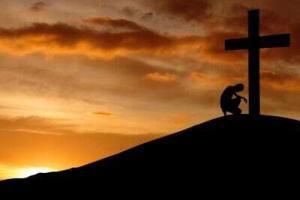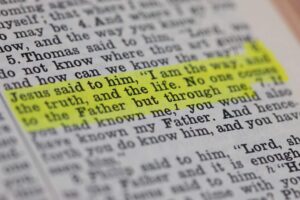Being broken might not sound like an ideal state to be in, but at times it can be a catalyst for a powerful experience with God. Consider our study verse:
“The sacrifices of God are a broken spirit; a broken and contrite heart, O God, you will not despise” (Psalm 51:17).
When I think back on some of our meetings in our church men’s group, there was a consensus opinion of how fortunate we were to experience a state of complete brokenness at one point or another in our lives. Without such, we would never have reached out to God for help. At the same time, we considered those who had grown up in the church and for most of their lives experienced very little disharmony such that complacency was an end result—and we actually felt sorry for them.
For a Christian to experience life from a self-sufficient point of view, whether it is from a lack of trials or simply a high dose of pride, would seem to create a life that has no room for God aside from the sacramental, robotic actions once a week on Sunday. We may faithfully attend church, and sit in the exact same pew week in and week out, but our heart is far from God. We go through the motions because our family has always been in this church and that’s what we do. But what kind of sacrifice are we offering Him?
In this Psalm—which is my favorite—we see David acknowledging his grievous sin of both adultery and murder and the cover-up conceived (see 2 Samuel 11 for the story). We can sense the agony of David, crying out to God for forgiveness, and we can also sense a truthfulness in his pain. This is clearly not sorrow over being exposed, but sorrow that reflects actions that have created a separation between him and God. David understands there is no sacrifice worthy other than authentic repentance. There is no external action on David’s part that can come close to a broken and contrite heart, the essence of being broken.
Most of us at one time or another in our lives have experienced a broken heart. When we think back on that time, we can almost once again feel the physical pain and sickening feeling that came with such emotion. This is the type of brokenness that often changes a person’s direction in life. This exemplifies David’s anguish.
It is this state where God is waiting to meet us. No, it was not His actions that brought us to this point, for our own free will and the choices we made have done this, but He is forever faithful and will never abandon us despite whatever sins we commit—even sins like those David presented in this Psalm. The point we should all recognize is we are never too far to come back home if only we will turn in that direction. But, we can never make that turn as long as we try to justify, excuse, or rationalize the evil of our own hearts. True repentance, therefore, is the doorway to freedom. It is not simply regret or remorse, for Judas had remorse for his actions but nowhere in Scripture do we see any statement of him praying to God, seeking forgiveness.
I am sure most of us will hear a voice inside of us saying, “That sin wasn’t that bad, compared to others. Don’t worry about it. God will forget.” And unfortunately, many of us will heed that voice and remain in the bondage of sin and darkness. As I stated earlier, we may feel remorse or regret, but neither is a sufficient substitute for true repentance (see Hebrews 12:17).
In being broken, David reminds us that the only path to forgiveness is with a broken heart and a humble spirit (Matthew 5:3). When we throw ourselves on the mercy of God, He delights to lift us up (Luke 18:13-14). When we openly acknowledge our sin against God, turn from it, and cry out for cleansing, God promises that He will hear us and forgive us (1 John 1:9).
We should be thankful for the difficult and heart-breaking times in our lives (James 1:2-4). Instead of approaching such trials with a “woe is me” attitude, find God in the situation and look for opportunities to grow from the experience. Seek Him with every ounce of your being and draw close. After all, regardless of how far you have moved away from Him, He has never moved.
For more about the 51st Psalm, go here.






